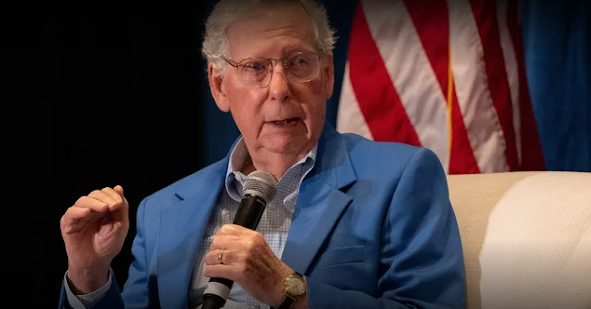McConnell and Kennedy on Polio Vaccine: Key Facts and Controversies
The intersection of politics and public health has long been a source of debate in the United States, and recent comments by political figures such as Senator Mitch McConnell and Robert F. Kennedy Jr. have reignited discussions about vaccines, public trust, and historical precedent. This article unpacks the key aspects of the controversy, the historical context of the polio vaccine, and what these discussions mean for public health in the modern era.
The Polio Vaccine: A Historical Breakthrough
The polio vaccine is one of the most significant achievements in medical history, effectively eradicating a once-deadly disease in many parts of the world. Developed in the 1950s by Dr. Jonas Salk and later improved upon by Dr. Albert Sabin, the vaccine has been a cornerstone of global public health efforts.
Key Milestones in Polio Vaccine Development
1955: Dr. Jonas Salk’s inactivated polio vaccine (IPV) receives FDA approval.
1961: Dr. Albert Sabin’s oral polio vaccine (OPV) is introduced, making mass immunization more accessible.
1988: The Global Polio Eradication Initiative (GPEI) is launched, reducing polio cases worldwide by over 99%.
Polio vaccines are credited with saving millions of lives and preventing severe disabilities, particularly among children.
Senator Mitch McConnell’s Comments
Senator Mitch McConnell, a childhood polio survivor, has been a staunch advocate for vaccines, emphasizing their importance in preventing diseases. Recently, McConnell reiterated his support for vaccination campaigns, citing his personal experience with polio and the life-saving role of vaccines.
McConnell’s Key Points:
Personal Experience: McConnell’s battle with polio as a child underscores the devastating impact of the disease.
Public Health Advocacy: He has consistently supported vaccine initiatives, including during the COVID-19 pandemic.
Bipartisan Appeal: McConnell has called for bipartisan cooperation to address vaccine hesitancy and misinformation.
Robert F. Kennedy Jr.’s Stance
Robert F. Kennedy Jr., known for his controversial views on vaccines, has frequently questioned the safety and efficacy of vaccination programs. His statements on the polio vaccine have drawn criticism from medical experts and public health officials.
Kennedy’s Assertions:
Concerns About Safety: Kennedy has suggested that some vaccines, including the polio vaccine, may have long-term side effects, a claim widely debunked by scientific research.
Misinformation Risks: Public health authorities warn that Kennedy’s comments contribute to vaccine hesitancy, which can lead to disease resurgence.
Public Health Implications
The debate over vaccines, fueled by political figures, has significant consequences for public health:
Vaccine Hesitancy
Rising Misinformation: Unverified claims about vaccines have led to growing skepticism, particularly in certain communities.
Impact on Immunization Rates: Lower vaccination rates can result in the resurgence of preventable diseases, as seen with measles outbreaks in recent years.
The Role of Political Leaders
Building Trust: Leaders like McConnell play a crucial role in advocating for vaccines based on personal and historical evidence.
Combatting Misinformation: Addressing false claims with facts is essential to maintaining public trust in vaccines.
The Way Forward
Strengthening Public Health Communication
Efforts to counter vaccine misinformation must focus on:
Community Engagement: Working with local leaders to promote vaccine education.
Transparent Messaging: Providing clear and accessible information about vaccine safety and efficacy.
Policy Support: Enacting legislation to fund vaccine programs and counter misinformation.
Learning from History
The success of the polio vaccine demonstrates the power of science and public cooperation. By revisiting this historical triumph, society can reaffirm its commitment to overcoming modern public health challenges.






0 Comments